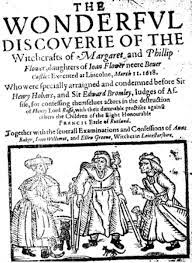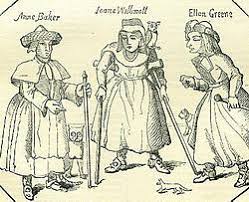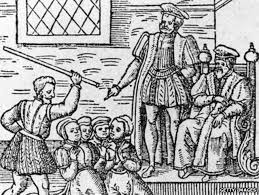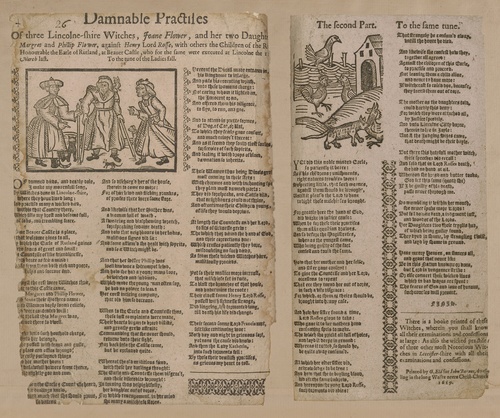In the haunting tapestry of execution ballads, the melodies play a role as evocative as the words themselves. These ballads, immortalising tales of crime, compassion, and retribution, often wove their narratives into familiar tunes. A tradition spanning centuries, known as 'contrafactum' or 'parody,' saw these well-known melodies repurposed to carry the weight of the stories they told. At the top of these ballads, the phrases 'to the tune of...,' 'sur l'air de...' or 'Im Thon zu....' beckoned listeners to recognize the tune's resonance even before a single note was sung.
This marriage of words and music created a unique fusion, one where melodies transcended time and culture to become vessels of emotion. Over time, certain tunes accumulated complex emotional associations, breathing life into the tales they accompanied. An exemplar of this phenomenon was 'Fortune My Foe,' a sombre melody that echoed across the landscapes of early modern northern Europe. This melancholic tune became synonymous with songs of death and disaster, forever intertwining its mournful strains with the stories of the condemned.
Yet, the artistry of execution ballads lay in their ability to surprise, to subvert expectations. Take, for instance, the lively dance tune 'Row Well Ye Mariners.' In an audacious twist, this tune was repurposed in satirical jubilation to celebrate the execution of John Felton, a Catholic 'heretic,' in 1570. The tune's inherent energy and associations with celebration were turned on their head, creating a vivid dissonance that mirrored the tumultuous times.
What's truly fascinating is that these tunes possessed an innate power to evoke specific emotional responses, often even before the lyrics were sung. The melodies themselves carried stories – stories of defiance, sorrow, or triumph – that resonated with audiences on a primal level. It was as if the tunes acted as keys, unlocking the emotional core of the narratives they accompanied.
In the rich tapestry of execution ballads, Italian variations stood as an exception to the general rule. Instead of relying on familiar tunes, Italian ballads embraced metrical forms like ottava rima, terza rima, and barzelletta. Each form held the power to dictate how the condemned criminals were portrayed. Terza rima, for instance, was exclusively reserved for the executions of nobility. These aristocratic figures found their voices in the ballads, singing their remorse in the first-person voice – an emotional resonance that transcended language and time.
Common tunes woven into the fabric of execution ballads included 'Fortune My Foe,' 'Row Well Ye Mariners,' 'Tender Hearts of London City,' 'Just before the battle, Mother,' 'Packington's Pound,' 'Bleeding Heart,' 'The Rich Merchant Man,' 'The Ladies Fall,' 'Russell's Farewell,' 'Welladay,' 'The Wife's Dream,' 'Half Hannikin,' and 'Fualdès.' Each of these melodies carried its own emotional weight, infusing the tales they accompanied with a depth that mere words alone could not achieve.
The allure of these tunes went beyond their auditory appeal. They harkened to an era where music wasn't just a backdrop but an integral part of life. As execution ballads were sold on bustling streets, they intertwined commerce and culture, captivating the passerby with the harmonious blend of emotion and melody. The melodies captured the essence of their times, echoing sentiments that, despite the centuries that separated us, still resonate with us today.
And so, the execution ballads, with their haunting tales and melodies, bridge the gap between the past and the present, reminding us that music has always been a universal language – one that transcends time, culture, and the boundaries of life and death.
The Tale of the Belvoir Witches
The story of the Belvoir Witches unfurls like a tapestry of intrigue and tragedy. The accused, a trio comprising a mother and her two daughters – Joan, Margaret, and Philippa Flower – found themselves ensnared in the dark webs of witchcraft accusations that cast shadows over England. Situated at the heart of this account was Belvoir Castle, the seat of Francis Manners, 6th Earl of Rutland, where the chilling narrative began to unravel.
Joan, Margaret, and Philippa were not mere strangers to the Earl's household; they came from local origins and held the mantle of herbal healers. Their descent into the pages of history and witchcraft lore commenced when they sought employment as servants for the Earl and Countess of Rutland. Their arrival at Belvoir Castle was marked by whispers of thievery and misconduct, tainting their reputation among fellow staff members. Unpopularity clung to them like a shadow, leading to their eventual dismissal, with only Joan receiving a meagre severance.
Tragedy followed the Flowers, a relentless spectre weaving its way into the lives of the Rutland family. The demise of young heirs, Henry and Francis Manners, cast an ominous veil over the Castle. As the chilling tendrils of illness wound around the household, suspicions grew, and fingers pointed at the three dismissed women. Their past as herbal healers and whispers of mischief took a sinister turn as they were accused of wielding dark powers.
Accusations of witchcraft loomed large, leading to their arrest in the bleak winter days of 1618. Initial examinations unfolded, peering into the depths of the women's involvement in the alleged malevolent sorcery. As the truth slowly unravelled, Joan Flower faced a dramatic end on her way to prison, choking on bread she believed to be blessed – a symbol of innocence in the face of the supernatural.
In Lincoln, the harrowing tale deepened as Margaret accused her mother, while Philippa confessed to practices of witchcraft on behalf of all three. The sisters' chilling revelations painted a portrait of spells woven with feathers and gloves, concoctions brewed in boiling water and blood, and communion with familiar spirits that wrought havoc on the household. The mother's familiar, a cat named Rutterkin, emerged as a catalyst of doom, forever linking their fate to the macabre.
Others, too, were caught up on the accusations. Anne Baker, Joan Willimot, and Ellen Greene were accused in the midst of the unfolding drama, revealing their own relationships with familiars and the sinister practices that plagued them. Their testimonies painted a picture of visions, spirits, and conjurings that fed into the narrative of witchcraft gripping the region.
As the saga reached its zenith, the Flower women faced trials presided over by the judicial system. Margaret's fate was sealed on the gallows of Lincoln castle in 1619, an emblem of the grim culmination of the accusations. And yet, the echoes of this tale resonate through history, encapsulated in a ballad that recounted their "Damnable Practices." Their tragic narrative continued to reverberate, etched into monuments and literature that bore witness to their fate.
In the annals of history, theories emerge to untangle the enigma. Historian Tracy Borman's compelling suggestion of political intrigue and personal agendas adds another layer to the saga. The shadow of George Villiers, Duke of Buckingham, looms large as Borman posits that he may have orchestrated a sinister plot to secure the Rutland title, framed the Flowers as witches, and obscured his own guilt.
The story of the Belvoir Witches remains a captivating chronicle of the human experience intertwined with the supernatural. A saga of innocence and guilt, power and conspiracy, it reverberates through the ages as a testament to the enduring grip of history's mysteries.
Damnable Practises Of three Lincolne-shire Witches,
Joane Flower, and her two Daughters, Margret and Phillip Flower, against Henry Lord Rosse, with others the Children of the Right Honourable the Earl of Rutland, at Beaver Castle, who for the same were executed at Lincolne the 11 of March last. To the tune of the Ladies Fall.
Transcription
OF damned deeds, and deadly dole, I make my mournfull song,
By Witches done in Lincolne-shire, where they have lived long:
And practisd many a wicked deed, within that Country there,
Which fills my brest and bosome full, of sobs, and trembling feare.
[O]ne Beaver Castle is a place, that welcome gives to all,
[B]y which the Earle of Rutland gaines the loves of great and small:
[His] Countesse of like friendlinesse, [Do]th beare as free a mind:
[Al]so from them both rich and poore, [?] helps and succour find.
[Am]ongst the rest were Witches three, [th]at to this Castle came,
[...]Margaret and Phillip Flower, [An]d Joane their Mothers name:
[Whi]ch Women dayly found reliefe, [and] were contented well:
[Th]at the last this Margret was, [rec]eived there to dwell.
[...]oke unto such houshold charge, [...] unto her belongd,
[...] she possest with fraud and guile, [he]r place and office wrongd,
[...] [s]ecretly purloyned things [t]o her mother home:
[...] unlawfull howers from thence, [d]id nightly goe and come.
[...]en the Earle & Countesse heard, [...]r dealings knew,
[...]ved much that she should prove, [...] so untrue.
And so discharg'd her of the house, therein to come no more:
For of heer lewd and filching prankes, of proofes there were some store.
And likewise that her Mother was, a woman full of wrath,
A swearing and blaspheming wretch, forespeaking sodaine death:
And how that neighbours in her lookes, malitious signes did see:
And some affirm'd she dealt with Sprits, and so a Witch might be.
And that her Sister Phillip was well knowne a Strumpet lewd,
And how she had a young mans love, bewitched and subdued,
Which made the young man often say, he had no power to leave
Her curst inticing company, that did him so deceave.
When to the Earle and Countesse thus, these just complaints were made,
Their hearts began to breed dislike, and greatly grew affraid:
Commanding that she never should, returne unto their sight,
Nor back into the Castle come, but be excluded quite.
Whereat the old malitious feend, with these her darlings thought:
The Earle and Countesse them disgrac't, and their discredits wrought:
In turning thus despightfully, her daughter out of dores,
For which revengement, in her mind she many a mischiefe stores.
Heereat the Divell made entrance in,his Kingdome to inlarge.
And puts his executing wrath, unto these womens charge:
Not caring whom it lighted on, the Innocent or no,
And offered them his diligence, to flye, to run, and goe.
And to attend in pretty formes, of Dog, of Cat, or Rat,
To which they freely gave consent, and much rejoyc't thereat:
And as it seemd they sould their soules, for service of such Spirits,
And sealing it with drops of blood, damnation so inherits.
These Women thus being Divels growne most cunning in their Arts:
With charmes and with inchanting spells, they plaid most damned parts:
They did forespeake, and Cattle kild, that neighbours could not thrive,
And oftentimes their Children young, of life they would deprive.
At length the Countess and her Lord, to fits of sickness grew:
The which they deemd the hand of God, and their corrections due:
Which crosses patiently they bore, misdoubting no such deede,
As from these wicked Witches heere, malitiously proceeds.
Yet so their mallice more increast, that mischiefe set in foote,
To blast the branches of that house, and undermine the roote:
Their eldest sonne Henry Lord Rosse, possest with sicknesse strange,
Did lingring, lye tormented long, till death his life did change.
Their second sonne Lord Francis next, felt like continuing woe:
Both day and night in grievous sort, yet none the cause did know:
And then the Lady Katherin, into such torments fell:
By these their devilish practises, as grieves my heart to tell.
The second Part. To the same tune.
YEt did this noble minded Earle, so patiently it beare:
As if his childrens punishments, right natures troubles were:
Suspecting little, that such meanes, against them should be wrought,
Untill it pleas'd the Lord to have to light these mischiefes brought.
For greatly here the hand of God, did worke in justice cause:
When he for these their practises them all in question drawes.
And so before the Magistrates, when as the yongest came,
Who being guilty of the fact confest and tould the same.
How that her mother and her selfe, and sister gave consent:
To give the Countesse and her Lord, occasions to repent
That ere they turnd her out of dores, in such vile disgrace:
For which, or them or theirs should be, brought into heavy case.
And how her sister found a time, Lord Rosses glove to take:
Who gave it to her mothers hand consuming spels to make.
The which she prickt all full of holes, and layd it deepe in ground:
Whereas it rotted, so should he, be quite away consum'd.
All which her elder sister did, acknowledge to be true:
And how that she in boyling blood, did oft the same imbrew,
And hereupon the yong Lord Rosse, such torments did abide:
That strangely he consum'd away, untill the houre he died.
And likewise she confest how they, together all agreed:
Against the children of this Earle, to practise and proceed.
Not leaving them a child alive, and never to have more:
If witchcraft so could doe, because, they turnd them out of dore.
The mother as the daughters told, could hardly this deny:
For which they were attached all, by Justice speedily.
And unto Lincolne Citty borne, therein to lye in Jayle:
Untill the Judging Sizes came, that death might be their bayle.
But there this hatefull mother witch, these speeches did recall:
And said that in Lord Rosses death, she had no hand at all.
Whereon she bread and butter tooke, God let this same (quoth she)
If I be guilty of his death, passe never thorough me.
So mumbling it within her mouth, she never spake more words:
But fell downe dead, a judgment just and wonder of the Lords.
Her Daughters two their tryalls had, of which being guilty found,
They dyed in shame, by strangling twist, and layd by shame in the ground.
Have mercy Heaven, on sinners all, and grant that never like
Be in this Nation knowne or done, but Lord in vengeance strike:
Or else convert their wicked lives which in bad wayes are spent:
The feares of God and love of heaven, such courses will prevent.
FINIS.
Method of Punishment
strangling
Crime(s)
witchcraft
Gender
Female
Date
1619
Execution Location
Lincoln
Link To The Main Podcast: here
Link To Una McIlvenna's Book And Website:
https://omeka.cloud.unimelb.edu.au/execution-ballads/about (podcast songs can be listened to here)
This page contains affiliate links. If you click an affiliate link and make a purchase, Haunted History Chronicles will earn a small commission for the referral at no cost to you. I am a participant in the Amazon Services LLC Associate Program, an affiliate advertising program designed to proved a means for us to earn fees by linking to Amazon.com and affiliated sites.























